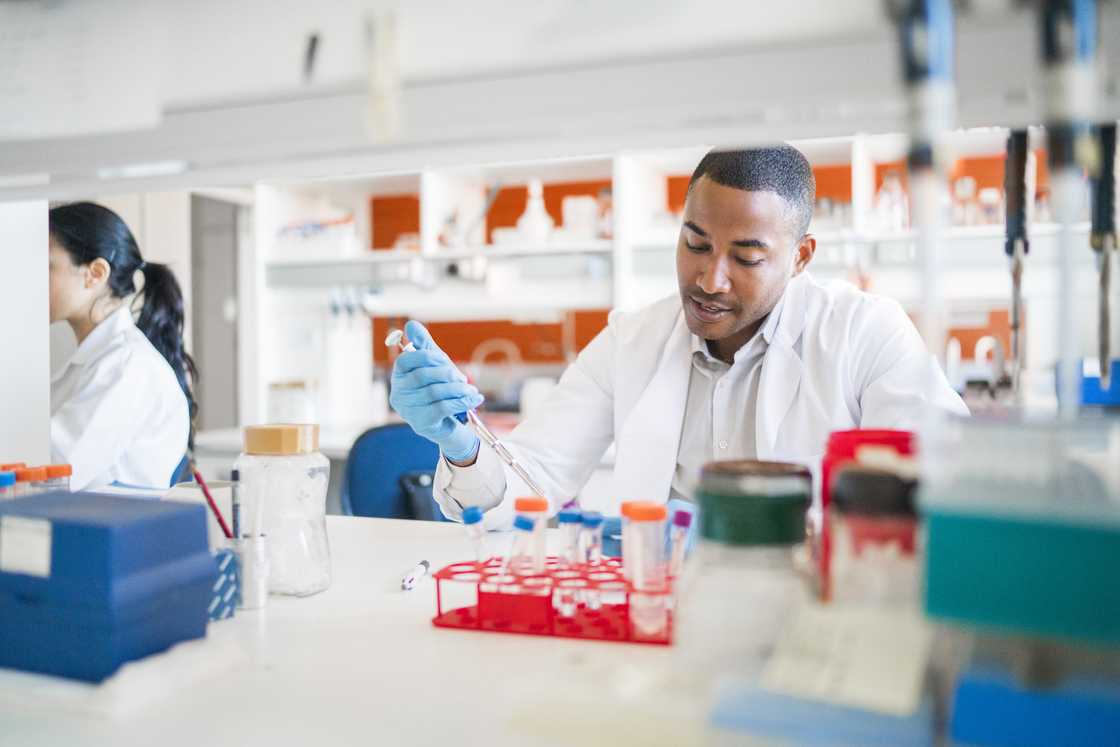KwaZulu-Natal Scientists Conduct HIV Cure Trials on Umlazi Women With Promising Results
- The University of KwaZulu-Natal's Africa Health Research Institute led a study to test a cure for HIV
- They conducted the trial study on a group of 20 women from Umlazi who stopped taking antiretrovirals for 18 months
- The trial test found that 20% of the women were able to control their viral load to an undetectable level
Tebogo Mokwena, a dedicated Briefly News current affairs journalist, contributed coverage of international and local social issues like health, corruption, education, unemployment, labour, service delivery protests and immigration in South Africa during his seven years at Daily Sun and Vutivi Business News.

Source: UGC
UMLAZI, KWAZULU-NATAL — Scientists from the University of KwaZulu-Natal's (UKZN) Africa Health Research Institute conducted a test trial on 20 women from Umlazi in a step closer towards finding the cure for HIV in South Africa.
UKZN conducts HIV cure trial
According to Mail and Guardian, the Institute's director for basic and translational science, Thumbi Ndung'u, led the research and investigation into the product. They studied the effects of two neutralising antibodies, CAP256V2LS and VRC07-523LS. These antibodies bind to HIV and stop it. They also studied Vesatolimod.
PAY ATTENTION: stay informed and follow us on Google News!
What did they find?
The scientists tested the three drugs on women living with the HIV-1 subtype C strain, whose CD4 count was higher than 500. They then asked the women to stop taking antiretrovirals (ARVs) for 18 months, between July 2022 and January 2024, to determine whether the virus would rebound.
The team found that four out of the 20 women were able to control their viral load to an undetectable level. The other participants had to restart their ARVs because they could not control their viral load. One of the women reached 2.5 years without the virus rebounding.
"This is not a cure for HIV because we cannot give patients something that only worked in 20% of participants. But it is a step in the right direction. We hope we can improve on this approach and maybe next time do a study where we can have 50%", he said.

Source: Getty Images
Similar HIV prevention measures taken
A bi-annual injection trial conducted in Uganda and South Africa in 2024 included 5000 participants in 25 sites in SA and three in Uganda. Of those, 2134 participants received lenacapavir, a pre-exposure prophylaxis drug (PrEP) injected twice in a year. None of those who received lenacapavir contracted HIV.
The director of the Centre for the Aids Programme of Research in South Africa (CAPRISA), Professor Salim Abdool Karim, said in December that the continent could find a cure for HIV in nine years. He said efforts are being made to use antibodies with ARVS.
SA must stand on its own after USAID fund cuts: Motsoaledi
In a related article, Briefly News reported that Health Minister Aaron Motsoaledi said South Africa must stand on its own after the United States government cut funding for the United States Agency for International Development (USAID). This affected the funding South Africa received from the USAID for HIV programmes.

Read also
KwaZulu-Natal police shoot dead 5 suspects, men wanted for string of cash in transit robberies
Motsoaledi said the country will survive without the funding from the United States. He said the fund cut would not affect the country's ARV programme. The SA government purchases 90 percent of ARVs distributed in the country.
PAY ATTENTION: Follow Briefly News on Twitter and never miss the hottest topics! Find us at @brieflyza!
Source: Briefly News



